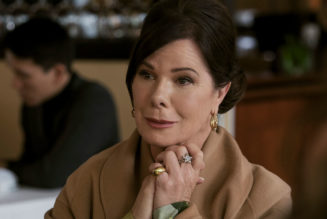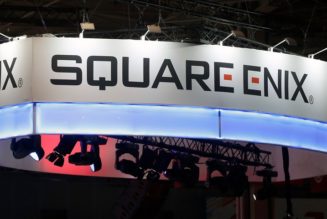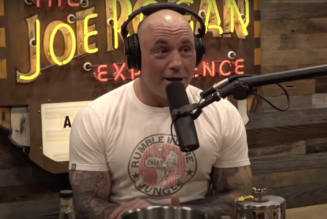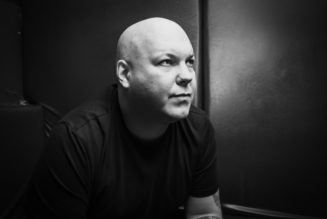At a time when the COVID-19 pandemic has impacted the music industry so heavily, many know of the struggles that both artists and fans have faced over the past six months. But for artist managers, the pandemic also poses some major obstacles and challenges.
Independent artist manager and modern Renaissance man Edwin Tsang is looking for ways to overcome those obstacles, and innovate the music and gaming industries while doing so.
GAMETHEORY
22 seems like a young age to launch an artist management company, curate festival lineups, photograph some of EDM’s biggest stars on tour, and create an EDM-gaming crossover festival, but Edwin Tsang has managed to do all of that and more in his short time in the music industry.
At the age of 19, Tsang entered the EDM space as a promoter and bottle service salesman, and has since catapulted himself into the world of independent artist management and festival curation. His company, Gametheory Management, currently hosts an impressive roster that includes some of EDM’s well-established stars and rising talents, and explores the crossover territory between gamer culture and dance music.
“Gametheory started in April 2019, and in its inception I’ve managed and worked with Varien, Grimecraft, Tokyo Machine, Xilent, Vanic, and more,” says Tsang of his f company. Working with artists of that caliber against some of the industry’s behemoth management firms can prove to be a challenge, especially in the COVID era. With touring at a virtual standstill, it’s time for artists, managers, and promoters to get creative.
REMAIN INDOORS
“Things have definitely slowed down. Touring is harder to predict and it’s tough to determine when shows will really re-open up again,” Tsang tells EDM.com. But where many would see a loss, Tsang sees opportunity for his artists.
“This is the best time for artists to explore other music options,” he declares. “For example, Tokyo Machine is making pop right now rather than festival bangers, because there aren’t any shows to play – which means writing something that’s not geared toward festival play would be a smarter choice.”
Those types of opportunities can lead to artists thinking more creatively, and exploring new sounds and concepts. With extra time to spare now that touring is on hiatus, artists can “create more music at home due to less shows, meaning it’s album or EP time for a lot of my guys,” says Tsang.
Many electronic musicians are indeed using this quarantine “downtime” to venture into album territory and reinvent their own styles while remaining socially distanced. But there’s more to it than just that, and artists have been pushing into the world of livestreaming and gaming—even since before touring came to a halt. “Some of my guys are streaming on Twitch now to pass the time and build their fanbase,” Tsang said.
As those gaming streams continue to grow in popularity, fans are getting the chance to interact with some of their favorite artists via game lobbies and private Discord servers. “Discord is a great way to keep the fans engaged and talking,” says Tsang. “All my artists have a server set up!”
Discord servers have indeed become a big hit with EDM acts and their fans, as many of them have begun to shift their attention away from major social media platforms like Facebook and Twitter. The Discord service offers text chat as well as voice channels originally intended to make cooperative gaming easier, but artists have found themselves using Discord for both gaming and music promotion to coalesce each community.
BETWEEN TWO WORLDS
Not only has Tsang noticed the parallels between electronic music and gamer culture, he’s also capitalized on them with some innovative crossover events. His festival, Ocean Meets Music, partnered with Trap Nation, Bandsintown, and We Dream Worlds to create a livestream music and gaming event that benefitted the Vancouver Aquarium amid its financial struggle due to the pandemic. Vanic, Tokyo Machine, Kill The Noise, SayMyName, Gammer, Cheat Codes, and a slew of other artists performed live sets via the stream, and acts such as KUURO and Calcium showed off their first-person shooter skills in a Valorant tournament.
That massive lineup was entirely curated by Tsang’s Gametheory firm. Assembling the lineup was a no-brainer, Tsang asserted. “It was really mainly messaging my friends first – those are a lot easier of an ask, as they may not ask for money and are a lot easier to deal with.”
His strategy of keeping some elements in-house benefitted him and the livestream festival by reducing costs to maximize the fundraising aspect, but ordinary business was involved as well, and Tsang bore some expenses. Those costs can weigh heavily on an independent manager, and in the new landscape of livestream festivals, it was difficult to mitigate them while continuing to maintain interest in a digital crossover event. “Originally we wanted to try to go for a two-day festival, but by July, digital music festivals were dying and the artists were not interested anymore,” Tsang explained.
As COVID-19 continued to run rampant, both artists and fans were beginning to feel the fatigue of livestreamed events, even after only a few months of quarantine. Still, the gaming element paired with the performers of Ocean Meets Music managed to attract over 11,000 unique viewers between the Bandsintown channel and the artists’ own channels, raising over $12,000 to save the Vancouver Aquarium.
Esteemed gaming gear brand HyperX was also on board for the festival, and since then, Tsang has formed a partnership. In turn, the cross promotion from the partnership bolsters Gametheory’s reputation and forges new relationships between EDM acts and the gamers who listen to their music, with a trusted brand backing those artists. More crossover events like Ocean Meets Music are in the cards for Tsang and HyperX, and one can only imagine just how blurred the line between gaming and music will become as a result.
THE GAME PLAN
Edwin Tsang’s strategies for taking Gametheory Management to new heights have proven effective, even against the backdrop of the pandemic. How has COVID-19 affected that plan? “My game plan has always been the same – blow up two artists by the time I’m 25,” he says. “I turn 23 in a few months, so I have another two-and-a-half years to make this dream come true.”
Tsang isn’t looking to add to the Gametheory roster at the moment, but should a promising new act arise, he says he is “always leaving that door open.” If a dream opportunity to work with innovators like Skrillex, Martin Garrix, or Porter Robinson arose, Tsang wouldn’t hesitate, of course.
Tsang’s desire to continue to break down doors in the music industry and incorporate the best elements of gaming has led him to dream big. At the intersection of gaming and EDM, Gametheory Management continues to brave the COVID-19 storm and strategize for what’s next. Hopefully for Tsang, that means achieving his goal of spawning an innovative new EDM star.
“I think artists who are constantly creating and learning are the ones who go the farthest distance,” Tsang says. “The artist has to want it the most, not the manager.”
To learn more about what’s next for Gametheory Management, visit their official website.

![Gametheory Management’s Edwin Tsang on His Strategy to Innovate EDM and Gaming in the Age of COVID-19 [Interview]](https://www.wazupnaija.com/wp-content/uploads/2020/10/gametheory-managements-edwin-tsang-on-his-strategy-to-innovate-edm-and-gaming-in-the-age-of-covid-19-interview-1050x600.jpg)








